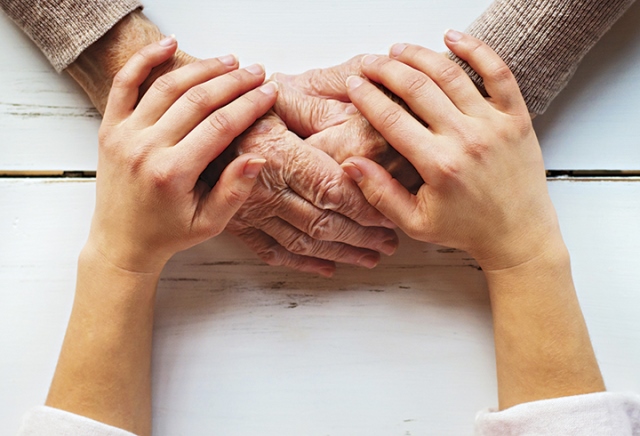As a result of COVID-19, several practices and processes in healthcare settings have changed. One change that has had a substantial influence on patients, families, and healthcare providers is that of hospital visitor policies.
Typically, hospitals and other healthcare facilities (e.g. long-term care) allow inpatients to be visited by loved ones each day and outpatients to be accompanied by support persons for appointments. In light of COVID-19, however, visitor policies have been altered in order to protect healthcare workers, patients, and families from COVID-19 transmission. At the present time, most patients are unable to bring others with them to outpatient appointments and most inpatients are required to remain in-hospital by themselves. While the newly developed visitor policies differ depending on the healthcare facility, one common element is that every organization has had to put restrictions in place.
The decision to restrict visitors in healthcare facilities was motivated by the important need to prevent the greatest number of people possible from being infected by COVID-19. Consequently, however, some unfortunate circumstances have occurred as a result of these visitor policy changes. One of these circumstances, is that most inpatients and outpatients are required to attend medical treatments/appointments without a support person by their side. For example, a person battling cancer may have to attend their first chemotherapy infusion by themselves; a new mother may have to welcome their baby into the world in a way that they did not envision; and a person may have to recover from a surgery without their system support in sight.
Additionally, some patients in palliative care have been unable to see their loved ones in-person prior to their death, which is both challenging for the patient and for those who wish to say ‘goodbye’ in-person. While some facilities do allow actively dying patients (i.e., those who are expected to die within a certain number of days or hours) to have visitors, it is plausible that many of these patients may no longer be conscious and/or able to meaningfully communicate at this stage.
In response to the current context, many healthcare facilities are helping to arrange virtual meetings amongst patients and their loved ones so that they can continue to maintain important social connections. These virtual meetings are proving to be a helpful alternative option for many patients, such that they may be worth using under normal circumstances, especially for patients who do not have in-person support available. Many patients travel significant distances in order to receive specialized care, and it is sometimes impossible to have others attend appointments given the distance(s) travelled. Moving forward and once COVID-19 resolves, perhaps more patients can receive support from afar via the technology platforms that we are presently using.
Alongside the noteworthy benefits being experienced by patients and families who are using technology to connect, some clinicians working in the field have also highlighted limitations. For instance, some patients may not own the technology required to commence their own virtual meetings (and not every healthcare facility has devices available to lend). Many patients may also feel uncomfortable sharing private health information with their loved ones over technological devices. Additionally, patients with communication challenges may be unable to effectively communicate via the devices and/or platforms available. And finally, some patients (e.g. older patients in long-term care facilities) may be unable to recognize their loved ones if they are not physically present.
Ultimately, everyone is doing their best during this time; healthcare leaders and providers are working tirelessly to limit COVID-19 transmission and patients and families are finding alternate ways to connect. It is difficult to make ethically defensible decisions in short timeframes and when dire consequences are present, and so decision-makers in healthcare have tried to ensure that the greatest number of people are protected and the least number of people are harmed. At the same time, they have put measures in place, such as virtual meetings with loved ones, to help alleviate some of the challenges that patients and families may be experiencing. Many of these measures may be worth maintaining after COVID-19 in order to provide greater access to clinical and personal care supports. If this occurs, then we ought to consider ways to mitigate the challenges so that we can all benefit. The current crisis and the change in visitor policies have certainly confirmed that individual well-being requires more than just physical health.
Andria Bianchi, PhD, is a Bioethicist at the University Health Network; Katherine Stanley, BScN, is a Registered Nurse at the University Health Network.




